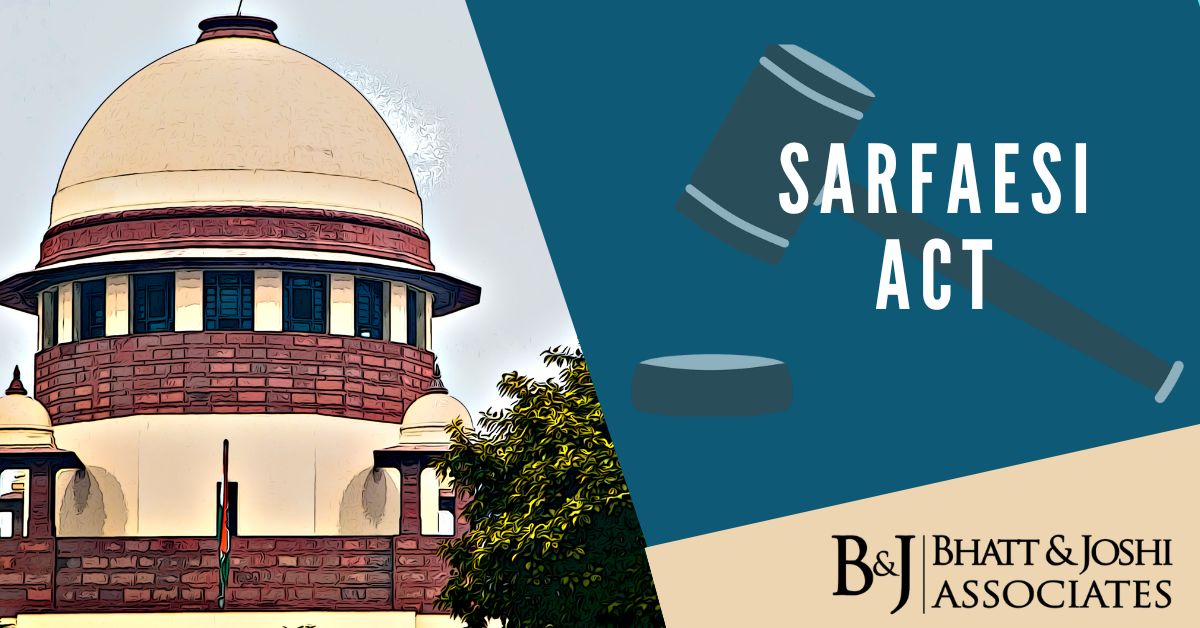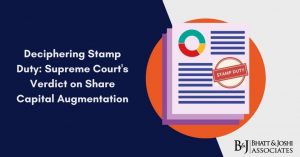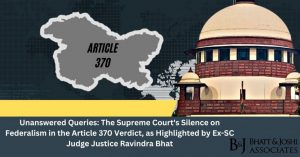SARFAESI Rule Affirmed by Supreme Court: Forfeiture of Entire 25 Percent Deposit on Auction Default
Introduction
The Supreme Court of India has issued a crucial ruling stating that banks have the ability to forfeit the entire 25 percent earnest money deposited by an auction purchaser. This decision, made in accordance with the Security Interest (Enforcement) Rules, 2002 (SARFAESI Rules) and SARFAESI Rule 9(5), was handed down by Chief Justice DY Chandrachud, Justice JB Pardiwala, and Justice Manoj Misra. It overturns the judgment of the Madras High Court, asserting that the forfeiture is not limited to the amount of loss incurred by the bank.
Several Important Aspects of the SARFAESI Rule Judgement
- The SARFAESI Rule, Rule 9(5), states: According to Rule 9(5) of the SARFAESI Rules, which stipulates the forfeiture of 25 percent of the earnest money deposit in the event that the auction purchaser fails to deposit the entire amount within the prescribed length of time, the Supreme Court referenced this rule.
- In the case of the entire deposit being forfeited, the court disagreed with the interpretation of the Madras High Court, which stated that the forfeiture should only be limited to the amount of loss that the bank had incurred. Rather, it emphasised that the entire deposit might be forfeited, regardless of the future selling amounts or recoveries achieved by the bank. This was the case both before and after the sale.
- The judgement made it clear that the forfeiture of a deposit equal to twenty-five percent is a legal consequence that is given by legislation in the event of default. Furthermore, the forfeiture is not subject to considerations of recovery or the amount of debt that is owing.
- The Court emphasised that the SARFAESI Act is a special legislation that has an overriding effect on general laws, including the Indian Contract Act of 1872. This was one of the main points that the Court brought up. It was emphasised that the principles that are outlined in Sections 73 and 74 of the Indian Contract Act, which deal with compensation for breach of contract, do not apply to auction transactions that are made in accordance with the SARFAESI Act.
- The judgement highlighted the greater purpose of the SARFAESI Act, which is to ease the recovery of debt in a time-bound manner, providing teeth to measures such as the sale of secured assets in the event that the borrower defaults on their payments.
Preventing Manipulation and Ensuring Efficient Recovery
For the purpose of preventing manipulation and ensuring efficient recovery, the Court noted the potential chilling effect of applying Sections 73 and 74 to breaches in payment of the balance amount by auction purchasers. This was done in order to justify the entitlement of banks to forfeit the entire sum. An interpretation of this kind could result in dishonest borrowers working together with auction bidders to take advantage of legal loopholes, which would make the process of recovery under the SARFAESI Act far more difficult. In its recent decision in the case of Authorized Officer State Bank of India vs. C. Natarajan, the Supreme Court of India made reference to its previous decision in order to shed light on the legislative intent underlying the provision of an overriding effect to the SARFAESI Act over the Indian Contract Act. It placed an emphasis on the necessity of particular restrictions such as Rule 9(5) in order to combat the deceitful manipulation of prices and to guarantee discipline among those who seek to purchase items at auction.
Conclusion: Upholding SARFAESI Rule for Secured Creditors
The complete judgement handed down by the Supreme Court not only brings an end to the disagreement about the forfeiture of earnest money, but it also establishes a solid legal foundation for secured creditors in accordance with the SARFAESI Act. This case stands as a major finding in the field of financial jurisprudence in India, since it preserves the supremacy of the Act, which ensures a debt recovery process that is both simplified and successful. The judgement placed a strong emphasis on the legislative goal that was behind Rule 9(5), which was to develop discipline in auction participants and to prevent the manipulation of prices in a dishonest manner.










